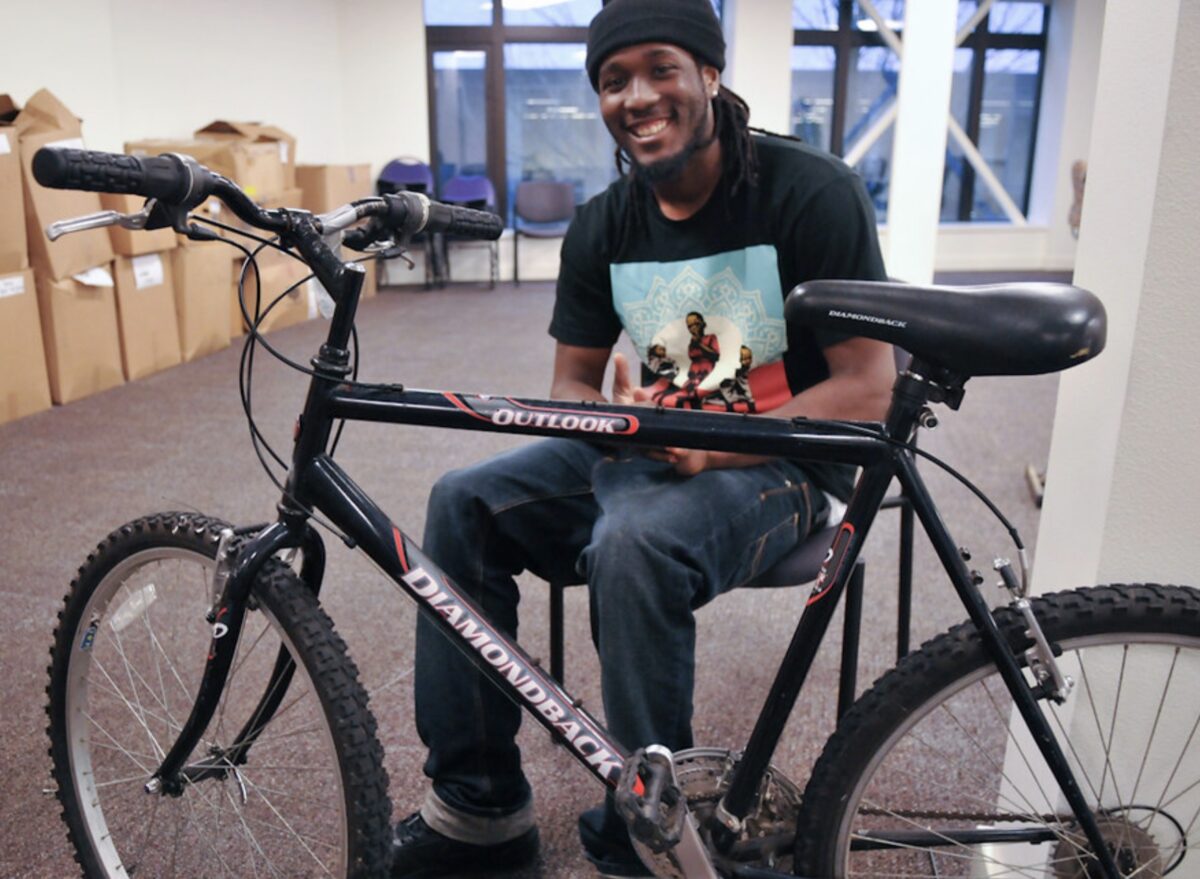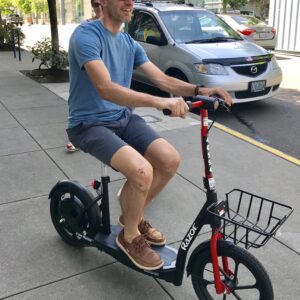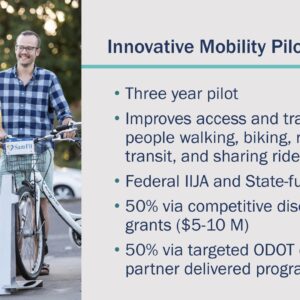
The Oregon Transportation Commission (OTC) spent a good deal of time last year mulling over where to put the money allocated our way from the Infrastructure Investment and Jobs Act, and they received a lot of public input in the process. While members of the OTC ultimately decided to put a significant portion of the funds toward freeway projects — despite concerted efforts from transportation and climate activists — there was one last-minute addendum to their spending plan that intrigued active transportation advocates.
Enter the Innovative Mobility Program (IMP), which then-Commissioner Alando Simpson came up with as a way to balance out community concern about how much money the Oregon Department of Transportation sets aside for freeway expansions and car infrastructure projects. This program is designed to give micro-grants (up to $5,000) to organizations working on projects that aim to expand access to active transportation of all kinds. The parameters of the IMP are broad, giving funding opportunities to a diverse array of nonprofits that may not typically apply for transportation grants.
Applications for IMP funding opened in September, and ODOT just announced the first set of 18 organizations set to get a check in the mail. In total, these organizations will receive $87,000 from the transportation department. Eight of these grants are for projects in Multnomah County.
Local non-profits who will use IMP funds include the Community Cycling Center, which won $5,000 to put toward their annual Holiday Bike Drive; Blanchet House of Hospitality, which was given $3,000 for a recurring monthly bike repair clinic for unhoused people and people with low-incomes; music therapy non-profit Jazz Not War, which will use $5,000 for a program to provide subsidized public transit fare, bike helmets, bike locks and minor bike repairs and Sara Bellum’s Bakery and Workshop, which was allotted $5,000 for bike helmets and safety education for people with disabilities, low incomes and traumatic brain injuries.
The IMP will fund projects in other parts of the state, too. For example, in east Oregon’s Wallowa County, the local school district received $4,858 for bike locks and racks for students and the Wallowa Mountains Bike Club received $5,000 for bike helmets and bike refurbishing for children from low‐income and rural homes.
It’s evident from the project list that when groups think ‘innovative mobility,’ they think bikes. The majority of projects that received funding aim to increase access to bicycling in a variety of ways for a diverse set of people.
In order to make the funds more accessible, the application process is ongoing until the funding runs out — and ODOT has $20 million dedicated to this program over the next two years — so interested applicants still have time to get their ideas in. Other components of the IMP, like large grants and contracts are expected to open in 2023. Check out the list of projects funded so far, and find out more about the IMP at the program’s website.







Thanks for reading.
BikePortland has served this community with independent community journalism since 2005. We rely on subscriptions from readers like you to survive. Your financial support is vital in keeping this valuable resource alive and well.
Please subscribe today to strengthen and expand our work.
The concept is great but of course the funding, even after the total $20 million is spent is a pittance compared to what the DOT spends annually. Good people at ODOT are working hard to make this program work but as the article points out so much money is spent on BAU type projects it’s hard to feel like this is meaningful. For example here’s a random project in Medford that will spend $60 million on 2 miles of road (https://www.mailtribune.com/top-stories/2022/12/05/mega-corridor-work-to-start-in-2023/)
$60 million is about what the city of Eugene needs to build out there bike master plan, as a point of reference.
We are not meeting the moment